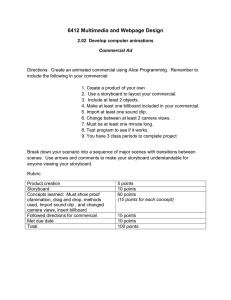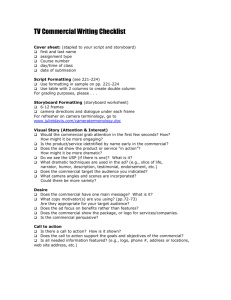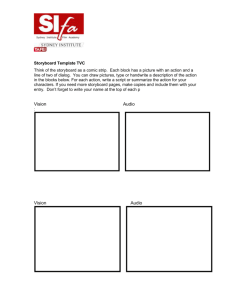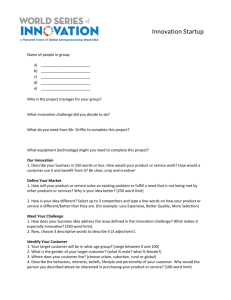Unit R081 - Storyboard activity - Lesson element - Learner activity (DOC, 2MB)
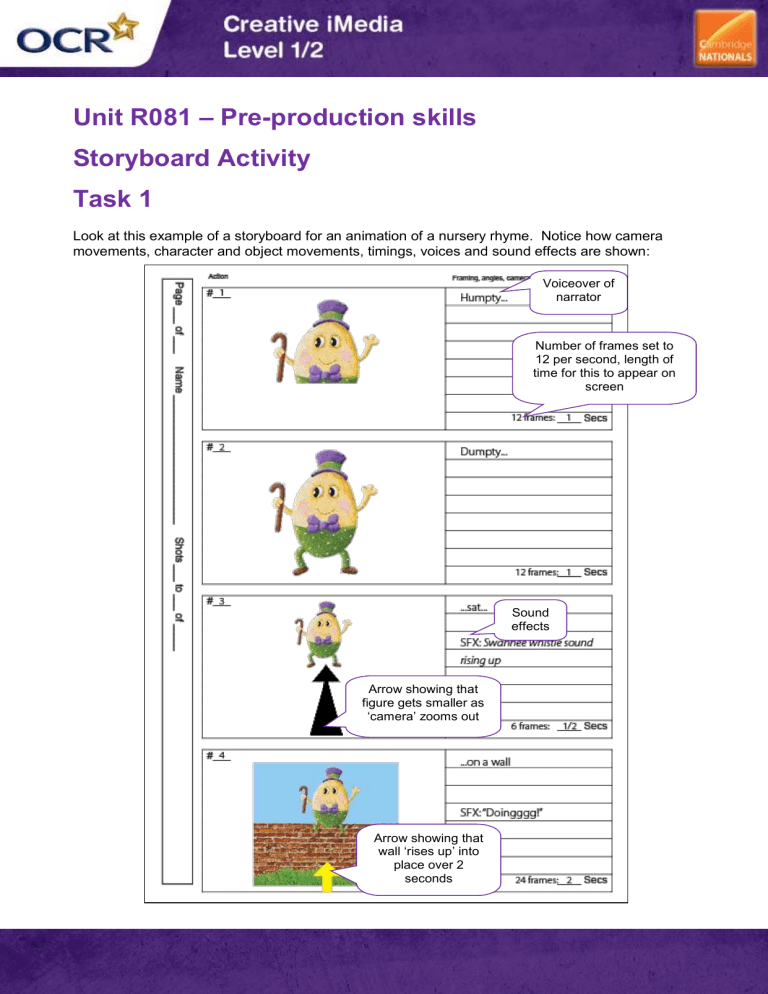
Unit R081 – Pre-production skills
Storyboard Activity
Task 1
Look at this example of a storyboard for an animation of a nursery rhyme. Notice how camera movements, character and object movements, timings, voices and sound effects are shown:
Voiceover of narrator
Arrow showing that figure gets smaller as
‘camera’ zooms out
Number of frames set to
12 per second, length of time for this to appear on screen
Sound effects
Arrow showing that wall ‘rises up’ into place over 2 seconds
Can you think of any way that the storyboard could be improved? Would you change any of the parts
(pictures, movement, effects, timing)?
Task 2
Work in groups of 4. Using the Storyboard Template provided, create a storyboard for an animation of the following nursery rhyme:
Split the nursery rhyme up into couplets (pairs of lines).
Person A will storyboard lines 1 and 2, person B will storyboard lines 3 and 4, person C will storyboard lines 5 and 6, and person D will storyboard lines 7 and 8.
Before you begin, discuss how you can make sure there is continuity between the different storyboards – for example, who is telling the story, and what does this character look like? If your character begins as a fishing cartoon frog, it must appear like this in all 4 parts of the storyboard!
Try to include a range of different angles and types of shot in your plan. Think about:
which parts of the rhyme are best suited to a close-up?
how many ‘characters’ are needed to tell this story?
(There are questions and answers, how will you deal with these?)
Make sure you show ‘camera movement’ such as zoom, pan or tilt and character and object movement using arrows as in the example. You must also include timings to indicate how long each part of the storyboard takes.
Task 3
When you have completed your part of the storyboard, swap with another member of your group. Suggest possible improvements for each other’s work.
Action
#___
#___
#___
#___
Framing, angles, camera movement, dialogue
____ Secs
____ Secs
____ Secs
____ Secs
